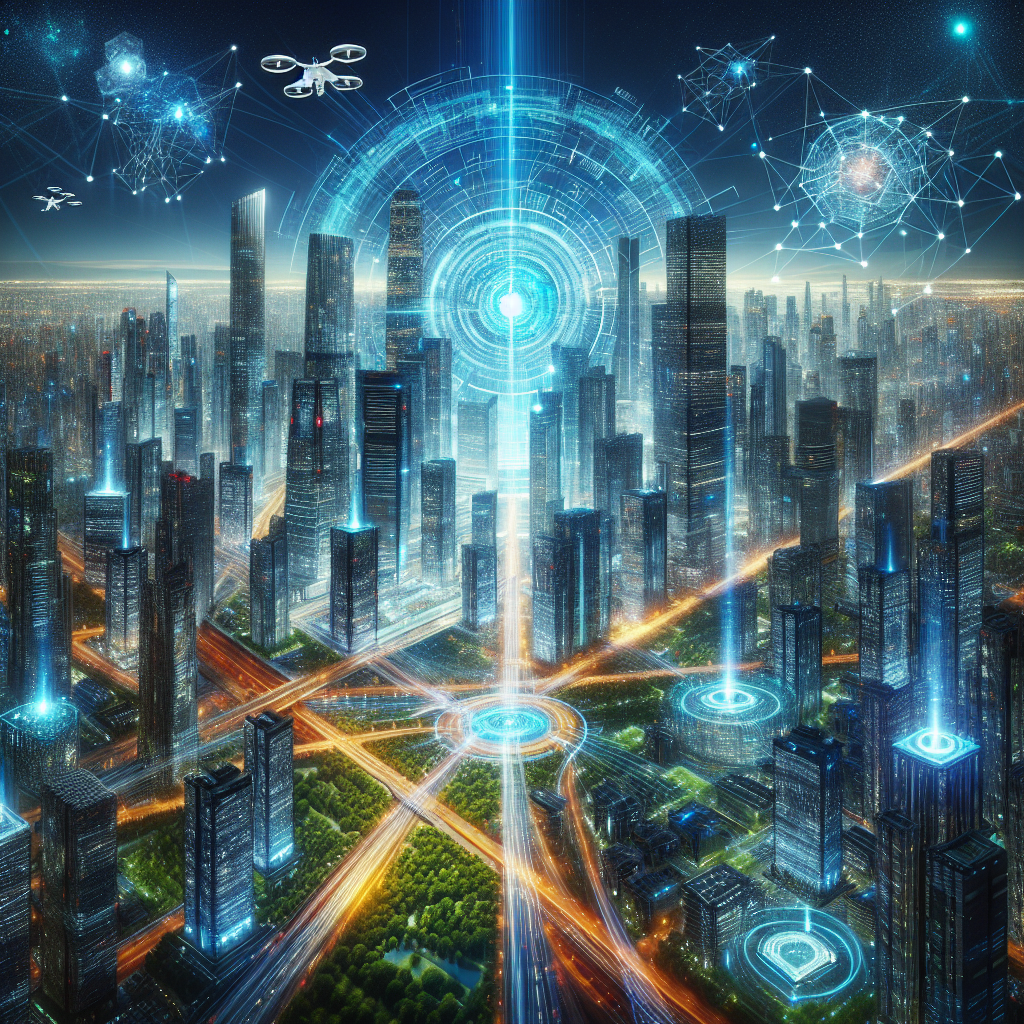The Integration of AI and Machine Learning in Smart Cities
In recent years, the concept of smart cities has gained significant attention as urban areas around the world look for innovative solutions to improve efficiency, sustainability, and quality of life for residents. One of the key technologies driving the development of smart cities is artificial intelligence (AI) and machine learning. These technologies have the potential to revolutionize how cities are managed and operated, leading to more sustainable and efficient urban environments.
AI and machine learning are already being used in a variety of ways in smart cities, from optimizing traffic flow and reducing energy consumption to improving public safety and enhancing healthcare services. By harnessing the power of these technologies, cities can make data-driven decisions, automate processes, and improve services for residents.
One of the key areas where AI and machine learning are making a significant impact in smart cities is in transportation. Traffic congestion is a major issue in many urban areas, leading to wasted time, increased pollution, and decreased quality of life for residents. AI-powered traffic management systems can help to alleviate congestion by analyzing real-time traffic data, predicting traffic patterns, and optimizing traffic signals to improve flow.
In addition to traffic management, AI and machine learning can also be used to improve public transportation systems. By analyzing data on ridership, routes, and scheduling, cities can optimize bus and train services to better meet the needs of residents. This can lead to reduced wait times, increased ridership, and a more efficient public transportation system.
Another important area where AI and machine learning are being integrated into smart cities is in energy management. By analyzing data on energy consumption, weather patterns, and building efficiency, cities can optimize energy usage to reduce costs and minimize environmental impact. Smart grids powered by AI can help to balance supply and demand, reduce waste, and increase the use of renewable energy sources.
AI and machine learning are also being used to improve public safety in smart cities. By analyzing data from sensors, cameras, and social media, cities can better predict and prevent crime, respond to emergencies more quickly, and allocate resources more effectively. This can lead to a safer and more secure urban environment for residents.
In the healthcare sector, AI and machine learning are being used to improve access to care, enhance diagnostics, and personalize treatment plans. By analyzing patient data, medical records, and research findings, cities can develop AI-powered healthcare systems that are more efficient and effective. This can lead to better health outcomes for residents and a more sustainable healthcare system.
Overall, the integration of AI and machine learning in smart cities has the potential to transform urban environments in profound ways. By harnessing the power of these technologies, cities can become more efficient, sustainable, and livable for residents. However, there are also challenges and concerns that need to be addressed, such as data privacy, cybersecurity, and ethical considerations.
FAQs
Q: What are some examples of AI and machine learning applications in smart cities?
A: Some examples of AI and machine learning applications in smart cities include traffic management systems, energy optimization, public safety analytics, and healthcare diagnostics.
Q: How can AI and machine learning help to improve public transportation systems?
A: By analyzing data on ridership, routes, and scheduling, cities can optimize bus and train services to better meet the needs of residents. This can lead to reduced wait times, increased ridership, and a more efficient public transportation system.
Q: What are some of the challenges associated with the integration of AI and machine learning in smart cities?
A: Some of the challenges include data privacy concerns, cybersecurity risks, and ethical considerations related to the use of AI in decision-making processes.
Q: How can cities ensure that AI and machine learning technologies are being used ethically and responsibly?
A: Cities can establish guidelines and regulations for the use of AI and machine learning technologies, conduct regular audits of AI systems, and involve stakeholders in decision-making processes to ensure transparency and accountability.

